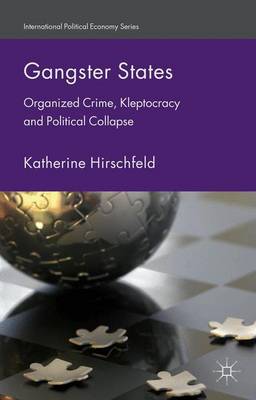International Political Economy
1 total work
Gangsterism, extortion and racketeering are currently viewed as deviant, pathological behaviors that are disconnected from formal political and economic structures, and often excluded from analysis in the fields of political science and economics. A critical reconsideration of organized crime reveals that the evolution of racketeering in systems of exchange should be understood as a natural phenomenon that can be predicted with tools from behavioral ecology originally developed to model the dynamics of predator-prey relations. These models predict the conditions under which unregulated markets evolve into hierarchical criminal syndicates, and how established organized crime groups expand and intrude into formal systems of government, creating chimeric 'gangster-states'. This book outlines the parameters of this process, and uses archival research to explore case studies of organized crime and kleptocratic state formation. A final section proposes redefining state formation as part of a longitudinal cycle of political-economic evolution that includes phases of racketeering, instability, collapse and regeneration.
